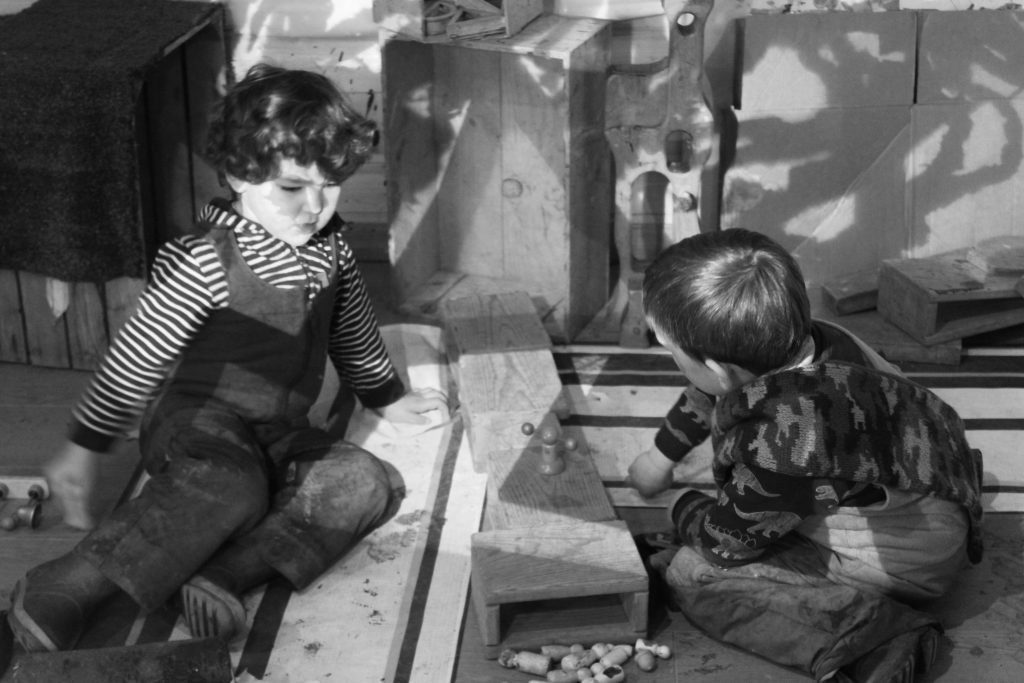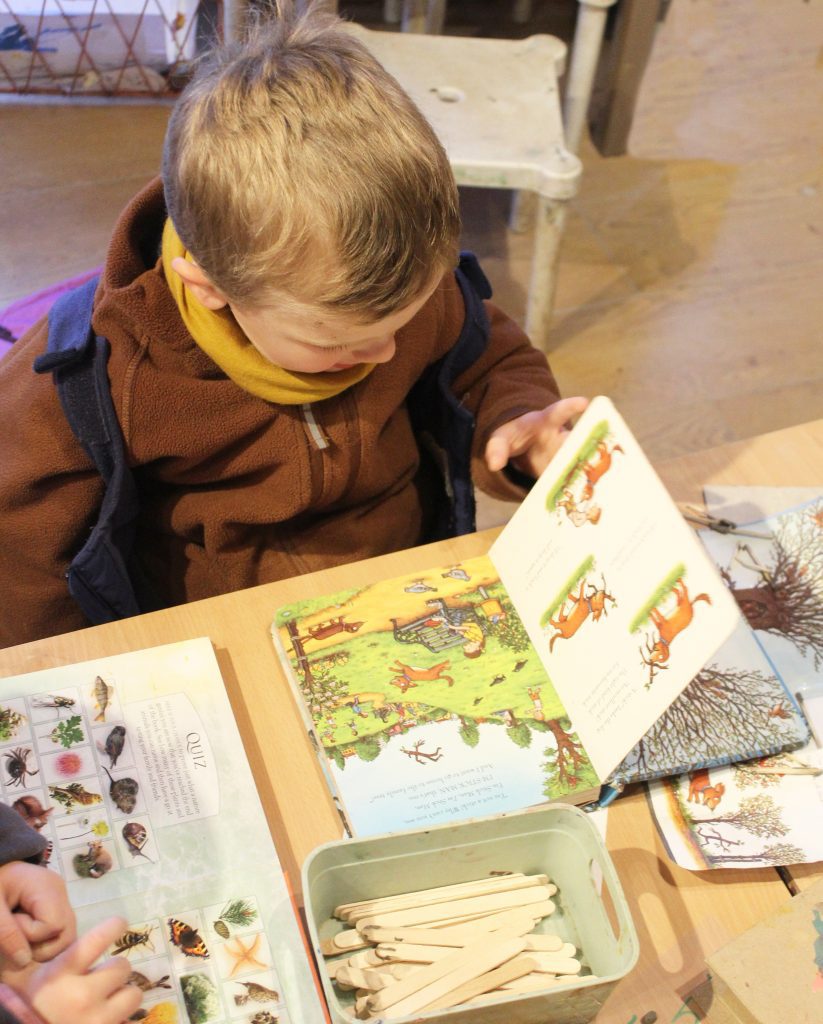The Importance of Speech and Communication
The pre-school years are an important stage in a child’s language development. It ensures the foundations are in place for later learning, literacy and forming relationships. At Inspirations nurseries we provide a language rich environment incorporating the Reggio Emilia Approach into our pedagogy. The children’s voice is at the heart of our ethos and is encouraged at every opportunity. Group morning meetings enables children to express their thoughts, ideas and experiences, as well as listening to other’s and asking questions which has a positive impact on confidence and self-esteem.
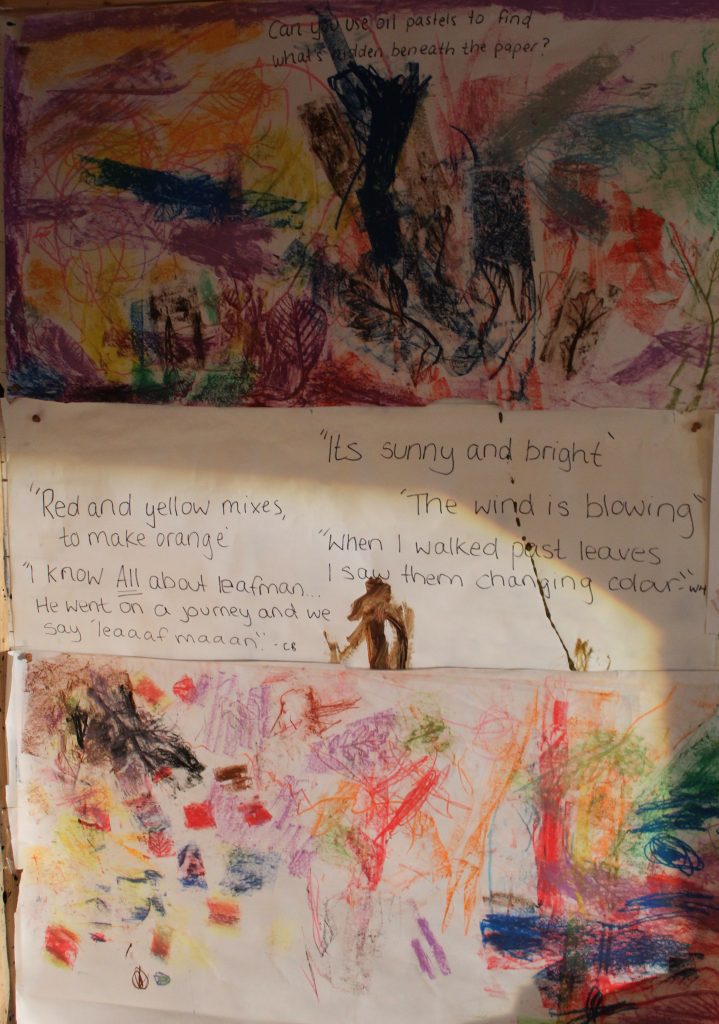
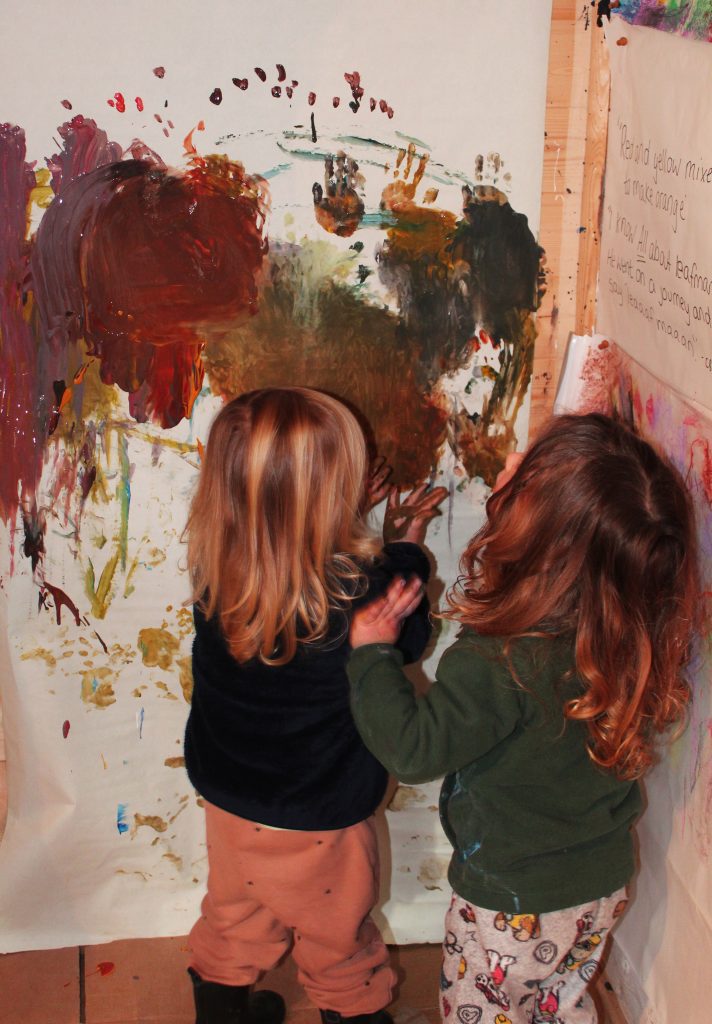
Communication enables children to build relationships. By interacting and playing
using speech and language, a child develops social skills and friendships that
support their well-being. Free choice play using loose parts, role play resources
and provocations allow children to use their own ideas and creativity whilst
encouraging interaction and communication. Children will play together in a mud
kitchen, using real size pans and bun trays chatting and problem solving to find
the perfect amount and size of stones to make cupcakes, or how much water to
add to the soil to make a delicious mud pie.
Children should be seen and heard
As children learn and use new vocabulary, they gain confidence in speech and
expression supporting development of reading and writing skills. We love books
at Inspirations and our practitioners read fiction and non-fiction books regularly
with children, expanding their vocabulary and knowledge as well as may other
skills. More exposure leads to better spelling, grammar, writing, and oral
communication.
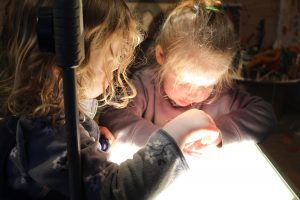
Singing Nursery rhymes with our young children daily helps them to develop an
ear for our language. Both rhyme and rhythm promote children to hear the
sounds and syllables in words, which helps children learn to read. The sooner a
child learns to read, the more opportunities they have to encounter the written
word. Teaching children phonetic sounds is also something we do to support
speech clarity and differentiation as well as reading and writing skills.
Ofsted have re-affirmed the evidence that children with delayed speech and
language are: ‘…less able to access the curriculum and to articulate their
thoughts and feelings. This can have a negative impact on their personal, social
and emotional development.’ Therefore, good speech, language and
communication skills support educational and social achievement for the future of
our children which is why we have such an emphasis in our early years settings.
Children should be seen…and heard.
-Deborah

